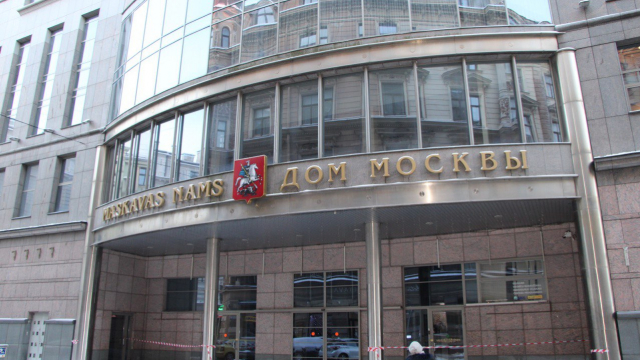On July 26, Rīga football club RFS played host to Azerbaijani team Sabah as part of their UEFA Europa Conference League fixture list (losing the match 0-2). However, the visiting team had a large contingent of Russian citizens in its ranks despite Latvia's strict restrictions on the entry of Russian and Belarusian citizens except in a few very specific cases such as pressing humanitarian or family matters. Participation in sports is not one of the exceptions for which entry is granted.
Seven representatives of Sabah had Russian citizenship, including the head coach Murads Musaevs and several other members of the coaching staff, and were able to come to the match in Latvia with Schengen zone visas issued in another country. According to the order of the Cabinet of Ministers, these Russian citizens had no valid reason to enter Latvia.
Kaudze momentu, taču šoreiz bumba negāja vārtos. Pēc nedēļas izšķirošā atbildes spēle Azerbaidžānā. Paldies par atbalstu! 💙 pic.twitter.com/ykdw1gCve5
— Futbola klubs RFS (@RFSDaily) July 26, 2023
The president of the Latvian Football Federation (LFF) Vadims Lašenko told LTV that the regulations of the UEFA governing body allow Russian passport holders to participate in the competition.
Lašenko refrained from saying whether the entry of Russian citizens of the visiting team into Latvia could be considered unethical.
"It's hard for me to say. It's not a matter of my competence," Lašenko said. "This must be asked in the appropriate institutions. We just want everything to be resolved on the [football] field, not in the offices."
The Azerbaijani team was previously at a training camp in Austria, and for that they were granted a short-term Schengen visa. It is also valid for entering Latvia, as there is no border control within the Schengen area.
"I haven't spoken with them [representatives of the Azerbaijan club], so I don't know the details, but they had the opportunity to enter here from a Schengen country," said Lašenko, "which I think they used. I understand that doing this is within the law."
The soccer squad had not violated the ban on entering the territory of Latvia, as they had not crossed the external border of the European Union to reach Latvia.
The head of the Directorate of Citizenship and Migration Affairs (PMLP), Maira Roze, confirmed that the Russian citizens were in Latvia legally, as they have a valid visa issued by another country for entry by land or through another member state of the Schengen area. According to Roze, the question should be addressed to the border guard.
"It should be taken into account that we border the Russian Federation. Our border is very important, and I think this ban should also be looked at in this way," Roze said.
Agnis Visņevskis, Acting Head of the Border Inspection and Immigration Control Department of the State Border Guard, admitted that the border guard has no information how the representatives of the Azerbaijan club entered.
"One thing is clear, that they have not crossed the external border of Latvia. Then the border guards would have information about all the documents... we can assume that the first member state that admitted them will take all security measures and that they are staying legally in the European Union," he said.
The representative of the Ministry of Foreign Affairs, Diāna Eglīte, emphasized the importance of a united position of European Union member states both on the issue of the entry of citizens of Russia and Belarus into the European Union, and on their participation in international sports events.
"The ministry will raise this issue in the European Union formats," said Eglite. "Also, the ministry recommends Latvian businessmen and sports associations to make decisions about cooperation with Russia and its citizens responsibly, before carefully evaluating the risks of sanctions and reputation."
Nevertheless, this case raises the question of how effective the well-publicised visa restrictions of countries such as the Baltic states and Poland really are if it is so easy for Russian and Belarusian citizens to get around them by securing Schengen visas in countries such as Austria. It also underlines how sketchy is data on how many Russians might be using similar methods to travel freely within the Schengen zone – including on Latvian soil.


























